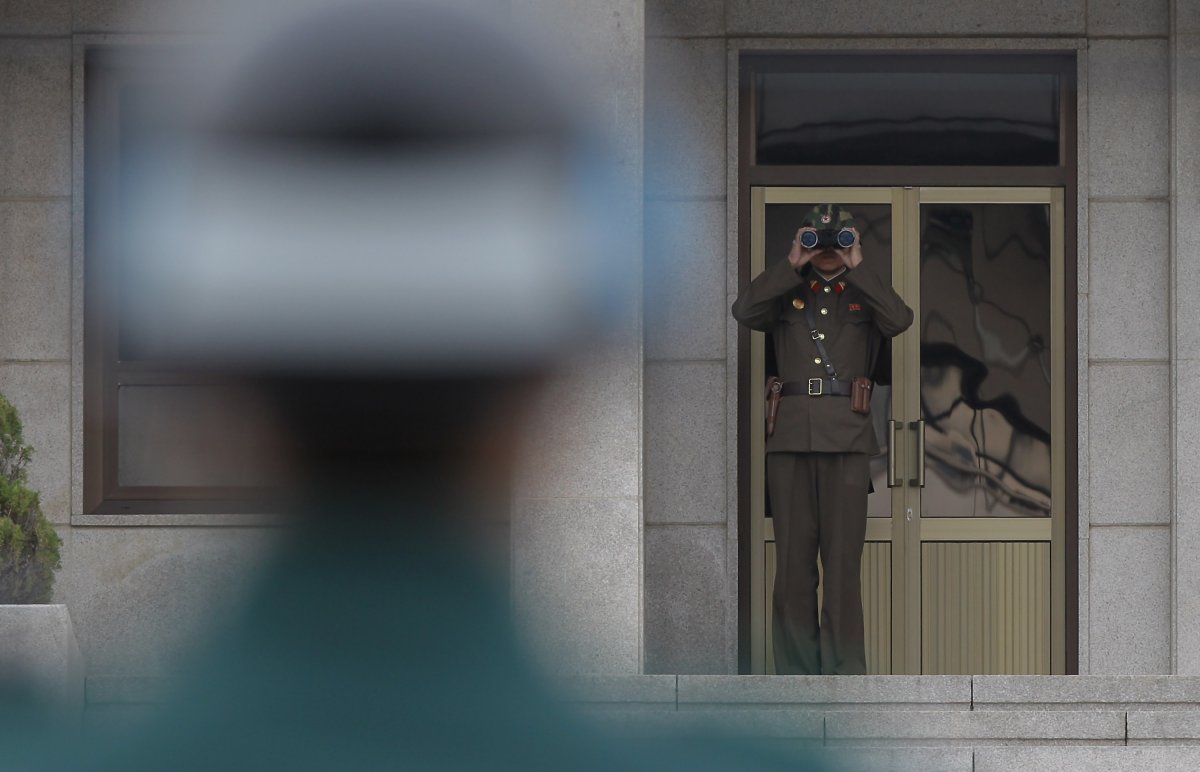SEOUL, South Korea – Seoul said Friday that it has decided to withdraw the roughly 175 South Koreans still at a jointly run factory complex in North Korea, raising a major question about the survival of the last symbol of inter-Korean co-operation.

The statement by the country’s minister in charge of inter-Korean relations came after North Korea rejected Seoul’s demand for talks on the factory park that has been closed nearly a month.
Seoul said it issued a Friday deadline for North Korea to respond to its call for talks because it was worried about its workers not having access to food and medicine. North Korea hasn’t allowed supplies or workers to cross the border since early this month.
“We’ve made the inevitable decision to bring back all the remaining personnel in Kaesong for the protection of our people as their difficulties continue to grow,” Unification Minister Ryoo Kihl-jae said in a televised statement. He didn’t take questions from reporters.
Ryoo urged North Korea to protect the property of South Korean companies at Kaesong and ensure the safety of South Korean managers when they return home. He didn’t say when the withdrawal would take place.
Pyongyang’s powerful National Defence Commission earlier said Seoul’s demand for working-level talks was deceptive and that ongoing U.S.-South Korean military drills and the spreading of anti-North Korea leaflets at the border were proof of Seoul’s insincerity.
An association of South Korean businessmen with factories in Kaesong released a statement saying they were shocked at Seoul’s decision to pull the workers out.

Get daily National news
The park in the North Korean border town of Kaesong is the most significant casualty so far in the recent deterioration of relations between the Koreas. Pyongyang barred South Korean managers and cargo from entering North Korea early this month, then recalled the 53,000 North Koreans who worked on the assembly lines.
“If they are truly worried about the lives of South Korean personnel in the (complex), they may withdraw all of them to the south side where there are stockpiles of food and raw materials and sound medical conditions,” the statement from an unidentified spokesman for the North’s National Defence Commission said Friday. It added that North Korea would guarantee the workers’ safety during the withdrawal.
“If the South’s puppet group looks away from reality and pursues the worsening of the situation, we will be compelled to first take final and decisive grave measures,” the statement said.
The statements on Kaesong this week follow what had been something of a lull after a weeks-long tirade of warlike North Korean rhetoric that included threats of nuclear war and missile strikes. Tension rose as Seoul responded with its own tough language to Pyongyang’s outburst, which was unusually violent, even by the standards of the already hostile relationship between the Koreas.
Meanwhile, the military drills continue. On Friday, airplanes flew over South Korea’s southeastern city of Pohang and amphibious vessels landed on the coast. North Korea calls the drills, which are set to end Tuesday, war preparations.
“Even at this moment, South Korea is ramping up the intensity of coastal landing drills with the United States in the east, driving the already tense situation to a point of explosion,” North Korea said in its statement. It said the annual drills and the scattering of North Korean leaflets along the border belie the South Korean government’s calls for talks.
The Kaesong complex has operated with South Korean know-how and technology and with cheap labour from North Korea since 2004. It weathered past cycles of hostility between the rivals, including two attacks blamed on North Korea in 2010 that killed 50 South Koreans.
“Seoul has executed a high-stakes gambit” by deciding to pull South Korean workers from Kaesong, said Kim Han-jung, a Yonsei University professor who once served as an aide to liberal President Kim Dae-jung, under whom the idea of the park was conceived. “The deadlock over the park is likely to persist for a long time. It will take a lot of political effort to restore it.”
Impoverished North Korea objects to views in South Korea that the park is a source of badly needed hard currency. South Korean companies paid salaries to North Korean workers averaging $127 a month, according to South Korea’s government. That is less than one-sixteenth of the average salary of South Korean manufacturer workers.
Pyongyang also has complained about alleged South Korean military plans in the event the North held the Kaesong managers hostage.
A South Korean employee at Kaesong said she watched the ministry’s briefing on television. She did not know whether she would leave Kaesong because her company’s headquarters in the South had not called her yet.
“I’ve been staying here to protect our factory and our goods,” she said when reached by phone, declining to be identified because her company asked her not to speak to the media. She has been in Kaesong since April 2, one day before North Korea blocked entry to South Korean workers, and has been eating rice and noodles, she said. One other colleague is staying with her.
—
AP writer Youkyung Lee contributed to this report.







Comments